10:16
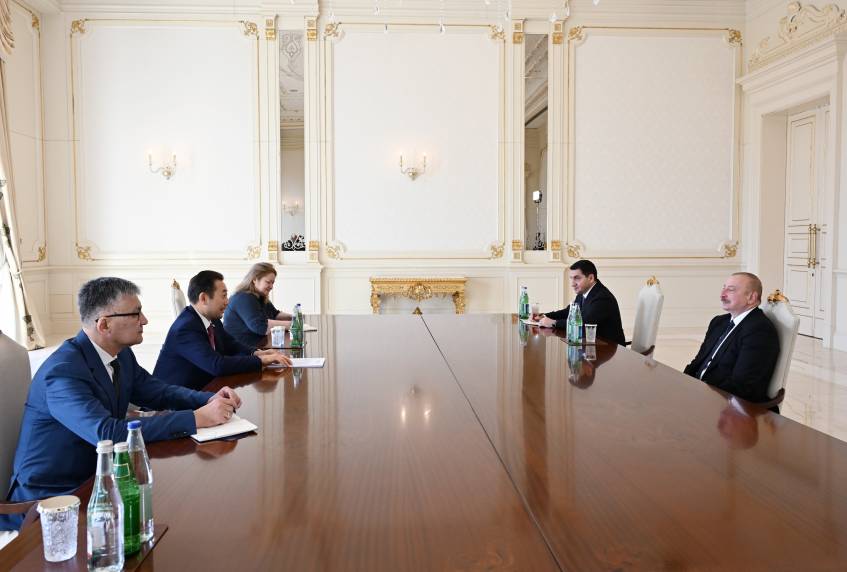
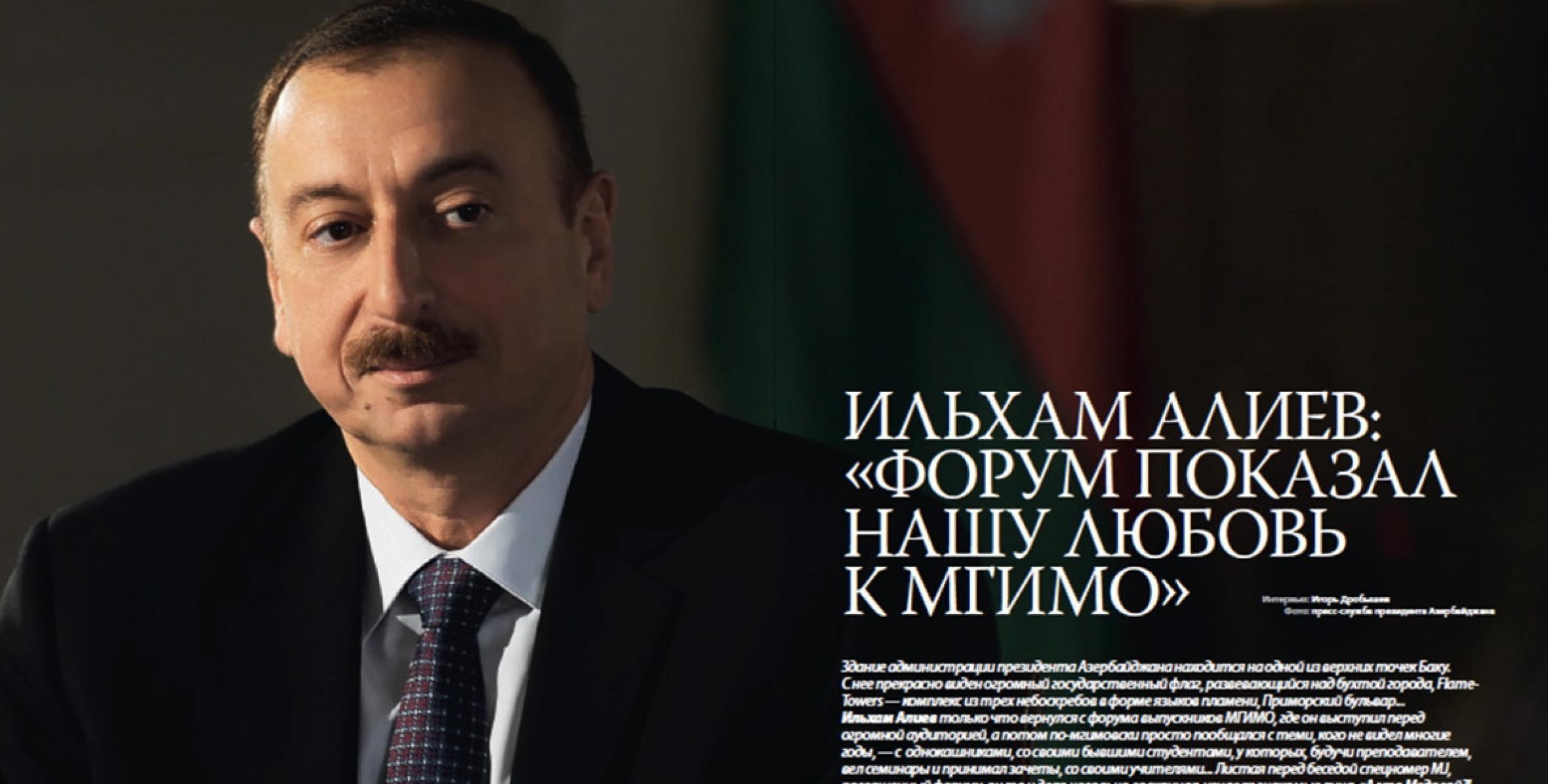
The August edition of “MGIMO Journal”, the publication of the Alumni Association of Moscow State Institute for International Relations, contains an interview with President of the Republic of Azerbaijan Ilham Aliyev. AzerTAg is providing this interview for the attention of readers.
The building of the Presidential Administration of Azerbaijan is situated in one of the highest locations of Baku. It commands a spectacular view of the huge national flag flying in the bay of the city, the Flame Towers, a complex of three skyscrapers in the form of tongues of flames, and the Seaside Boulevard...
Ilham Aliyev has just returned from a forum of MGIMO graduates where he addressed a large audience, and then, much in the MGIMO style, talked to those he hadn’t seen for many years – classmates, former students he held seminars and exams for as a teacher, and his teachers... Before our conversation, while leafing through the special edition of “MJ” dedicated to the forum, he kept involuntarily exclaiming on recognizing familiar faces, "And this is Medovoy?! I remember him perfectly well! He was always so slender! Is he still working? Good for him!"
- MJ: By the way, Nikolay Ivanovich Lebedev, the MGIMO rector at the time of your career there, is also in great shape. He is an honorary guest of the forum.
- I treat him with great respect and mentioned that in my remarks today. In the run-up to the forum we spent two hours together, remembering those days ... Nikolay Ivanovich deserves the highest praise: a veteran, a principled and fair man with a great sense of dignity – a true leader. Under his leadership, MGIMO simply blossomed and was the leading university in the country! And Anatoliy Vasilyevich Torkunov revitalized those traditions. I mentioned that at the forum too.
We, the alumni, are proud that MGIMO is one of the leading universities not only in Russia but also in the world. Many Azerbaijani graduates will tell you that the experience and knowledge they gained at MGIMO are still proving very helpful in their senior positions in Azerbaijan.
- MJ: It is hard to imagine a more important position than that of president. It is an unprecedented situation when one of our graduates went on to become head of state. In general, Azerbaijani graduates play a special role in the MGIMO community: your daughter Leyla is the president of the Azerbaijan MGIMO club and the chairperson of the council of Azerbaijani alumni. And the executive secretary of the association, Ruslan Aliyev, has established and is heading a promising department of ecology and natural resources of the university...
- It is therefore logical that the MGIMO forum is held here in Azerbaijan!
- MJ: I take this opportunity to thank you for the terrific reception in Azerbaijan. Baku deserves a special mention – it is an amazing city that has amazed us all with ultramodern buildings - "Flame Towers", the Heydar Aliyev Center...
- Yes, these are new symbols of the city. They have emerged in the process of urbanization of Baku. I think that, on the one hand, we have managed to give modern architectural ideas the opportunity to express themselves and, at the same time, to preserve the antiquity. Modern buildings mustn’t be in conflict with the historical appearance of the city. We have expert groups evaluating architectural innovations from this point of view.
-MJ: The “Flame Towers” are an amazing idea! How was it born?
- Azerbaijan is the Land of Fire. Burning gas was spurting from under the ground in different parts of the city in ancient times. So the coat of arms of Baku has always had three tongues of flames. If we put it figuratively, flames and the process of burning are a natural state for Baku, our people and society. So the idea of the architect to build a complex of buildings onto which tongues of flames are projected, and they "burn" like a torch, especially in the evening, gives the city a distinctive style. But we also have traditional symbols, especially the Maiden Tower – a medieval monument of architecture. When you walk in the Old City, you find yourself in the atmosphere of the Middle Ages, but as soon as you cross the street towards the embankment, you get into a modern city.
- MJ: And from there you can see a huge flag, which is said to be the largest national flag in the world...
- Well, the goal, of course, didn’t lie in the fact that it should be the biggest flag in the world. The goal was to transform and landscape this place. Earlier, this area housed factories and a naval base. We have moved it to another location, and now there is a museum of the national flag on an area of about 5 hectares there, next to the flag. The total area around the complex is 60 hectares. To do this, we have extended the embankment, the boulevard, by increasing its length from 3.5 to 14 kilometers! And no wonder, because the place is very good and can be seen from almost any location of the city.
- MJ: Both the "Flame Towers" and the flag are the symbols that are clearly working to strengthen the national identity of the Azerbaijanis.
- Certainly.
- MJ: We in Russia have been breaking spears around what should be considered our national idea for 20 years. How do you define your national idea?
- First of all, it is independence. One may interpret the turn of the 1990s in many ways, but above all it was a time when we acquired the opportunity to gain independence and establish the independent state of Azerbaijan. We had had such experience at the beginning of the 20th century, albeit for just two years ... The idea of independence of Azerbaijan and the identification of the Azerbaijanis is based on the successful development of our country. In the years of independence – which is still a short time, only 21 years – we have achieved a complete transformation of the social system and economic relations. Today Azerbaijan is a country with a strong position in the region and the world. The recent election of Azerbaijan as a nonpermanent member of the UN Security Council is the pinnacle of international activities for any country that is not one of the five permanent SC members. And, of course, against this background our state symbols – the flag, the national emblem, the anthem, as well as the transformation of Baku and other cities – are also the tools in educating the younger generation in the spirit of patriotism, love of the country, pride in their country and a positive attitude in society. Public consciousness in Azerbaijan, people’s mood and their attitude to life are very positive, especially among young people. I am sure you have witnessed that. After all, it is not only the statistical data and GDP indicators that matter, but also the way people feel.
- MJ: I did feel it. And it reminded me the years when you were teaching at MGIMO. There was a widespread trend towards the formation of an active life position among young people. You will probably remember that.
- I do, it was a correct trend! I applaud it!
- MJ: Teaching is not easy. In fact, some people believe it is unrewarding. But on the other hand, it is such an exchange of energy!
- I agree. I began teaching just a few years after graduation, as a graduate student. And I could identify with students perfectly well – I can say that deep inside I was one of them, on the other side of the auditorium. So I always tried to help and support them, sometimes by giving them a slightly higher grade. I think I wasn’t too bad a teacher. I remember that time very well. But when I was approached by guys I had taught to during the forum today, I honestly could not remember all of them – I had a lot of students! They live and work not only in Moscow and other Russian cities, but also in countries of Central Europe. And every time I meet them, I feel great! Of course, I was particularly pleased to see my old friends from the institute, e.g. Sergey Abakumov. He was the secretary of the Comsomol youth league and I was a student. But we were friends. Incidentally, he has played a major role in conducting the forum. I could think of many more people I studied and then worked together with. I spent 15 years of my life with the institute!
- MJ: How much are you aware of news at MGIMO? Do you visit our web-site? After being reelected, rector A. V. Torkunov set some ambitious goals before the university.
- Unfortunately, I haven’t visited the web-site for a long time, but we communicate with the rector quite regularly. Anatoliy Vasilyevich has repeatedly visited Baku over the last few years. He keeps me informed. But I can’t say that I follow the daily activities of the institute, of course. There is just not enough time to do that.
- MJ: In 2014, MGIMO will celebrate its 70th anniversary. I remember you addressing the 60th anniversary, and it was quite an event! Do you plan on attending the upcoming anniversary?
- You know, I also participated in the celebration of the 40th anniversary of MGIMO in 1984. It was held at the Hall of Columns. I was sitting in the audience, as I was just a graduate student at the time, and the ceremony was conducted by Nikolay Ivanovich Lebedev. In 1994, I was unable to participate in the celebrations. In 2004, as you rightly pointed out, I addressed the anniversary ceremony. So if there is an opportunity to do that in 2014, I will be glad to address the celebration.
- MJ: The forum has been held. The communication was great! In your opinion, has it given an impetus to the development of the MGIMO corporation?
- I have to say that, of course, it has. It is a landmark event in the history of our institute. It has shown that we are together and have never lost touch with each other. We may not have communicated in such a broad format, but I am sure and I know from my personal experience that we have never lost touch. So first of all, the forum has shown that we have a great desire to get together. It has shown the unity of the people, many of whom have achieved great successes in different areas: in politics, diplomacy, business, journalism and other fields. This once again demonstrates the high level of education. And secondly, the forum has allowed us the opportunity to demonstrate our attitude towards MGIMO and to show our love of it. What is the development? I think that in the future we will transform the forum – of course, after consultations with the leadership of MGIMO – into a platform for discussions which may produce important foreign policy initiatives.
- MJ: So it will be more of a business meeting than just a nice party.
- Of course, it will be a business meeting, but a pleasant one! In Baku, the forum participants have had the opportunity to have some rest, see the city, sit around a friendly table just like in younger years and discuss important issues of contemporary international relations, environmental matters, educational problems, etc. In the future, we can invite prominent politicians and public figures who have no bearing to MGIMO to take part in these discussions. This is how I see its future. During my speech at the forum, I expressed our readiness to hold further forums of MGIMO in Baku. We conduct many such events – a few days ago, for example, we hosted the Davos forum, last year we conducted the Crans Montana forum. We conduct forums on Intercultural Dialogue - the Alliance of Civilizations, and other international events.
I think that the MGIMO forum can take a rightful place among them.
- MJ: I saw that the audience liked your idea. This is not surprising, because the forum was held at a wonderful level.
- I think that if we had put the issue to vote, the vast majority of the audience would have voted in favor of that!

Aleksandar Vučić, President of the Republic of Serbia, made a phone call to the President of the Republic of Azerbaijan Ilham Aliyev, on April 16, briefing him on the pressures Serbia has been encountering recently and requesting the support of the friendly...
16 April 2024, 20:36Dear Mr. Pellegrini,
I sincerely congratulate you on your election as the President of the Slovak Republic.
The development of friendly relations with Slovakia holds great significance for us. Currently, there are good opportunities for enriching the...
15 April 2024, 13:06Prime Minister Muhammad Shehbaz Sharif of the Islamic Republic of Pakistan made a phone call to President Ilham Aliyev of the Republic of Azerbaijan on April 9.
Pakistan's Prime Minister congratulated the head of state on the occasion of Eid al-Fitr and wished...
09 April 2024, 19:52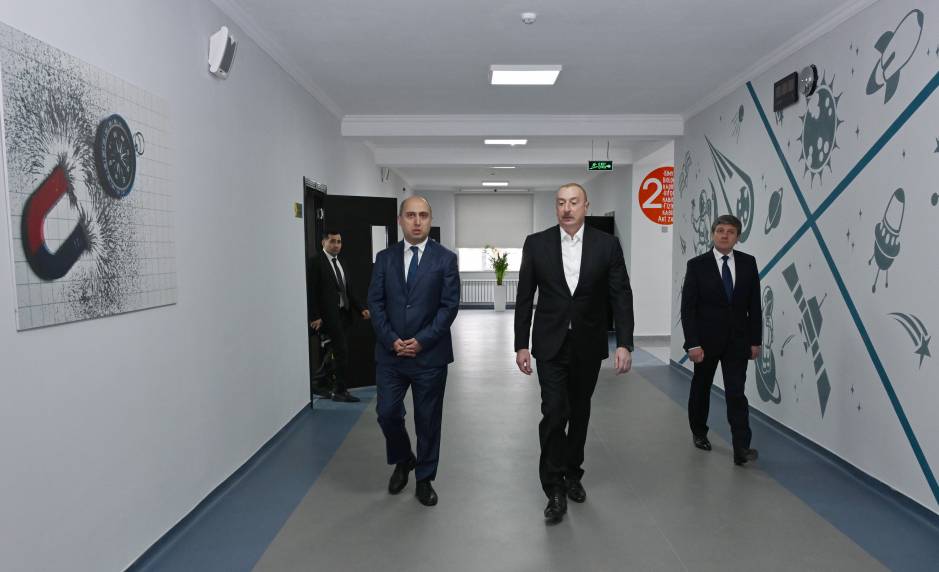
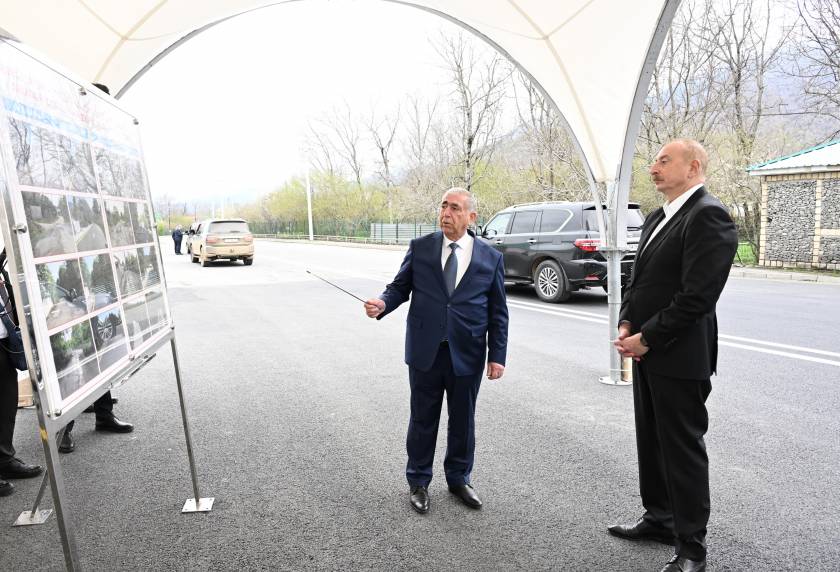
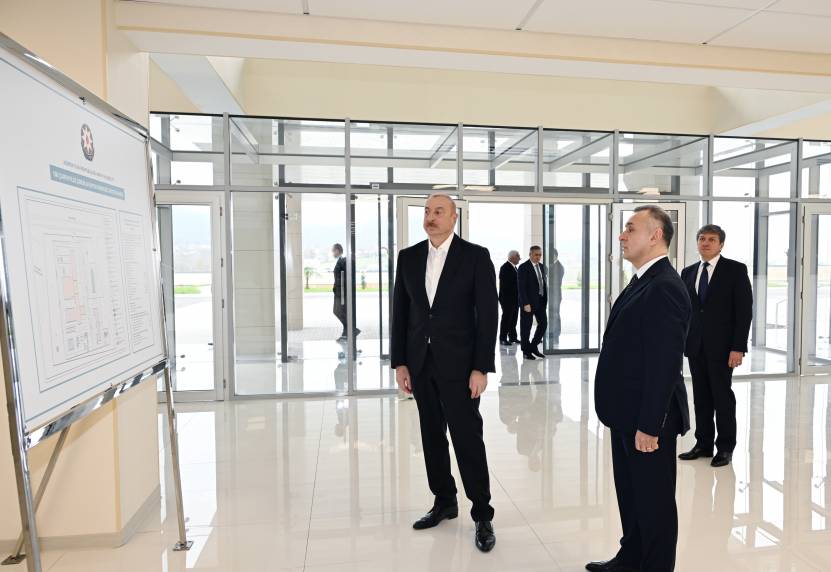
On April 9, President Recep Tayyip Erdogan of the Republic of Türkiye made a phone call to President Ilham Aliyev of the Republic of Azerbaijan.
The President of Türkiye congratulated President Ilham Aliyev on the occasion of Eid al-Fitr and wished the people of...
09 April 2024, 15:39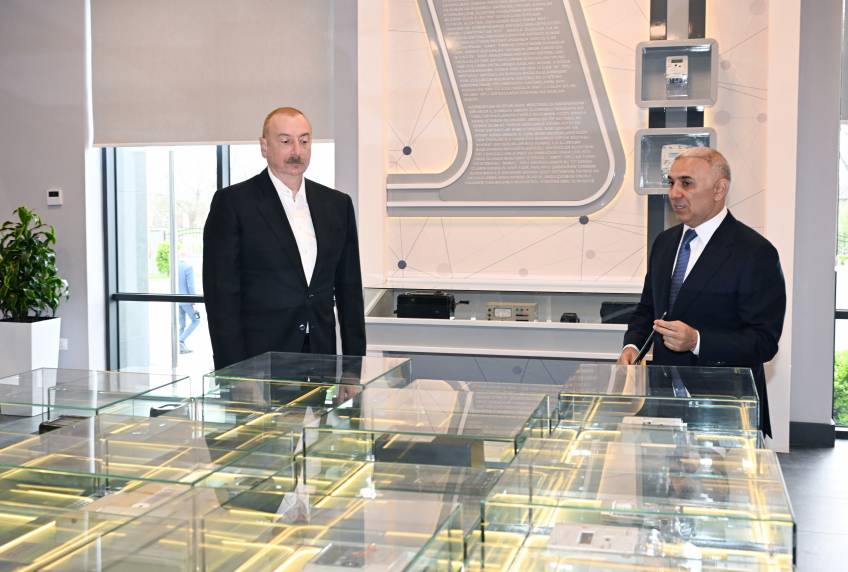
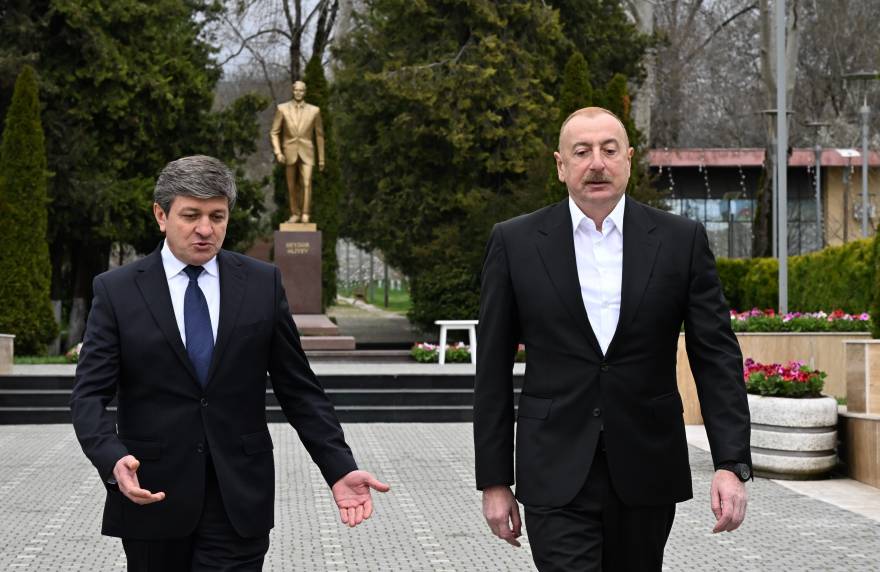
President of the Republic of Azerbaijan Ilham Aliyev has toured the Qabala district.
The head of state visited the monument to National Leader Heydar Aliyev erected in the city of Qabala and participated in the opening ceremonies of the 110/35/10 kV "Hajialili"...
09 April 2024, 15:14